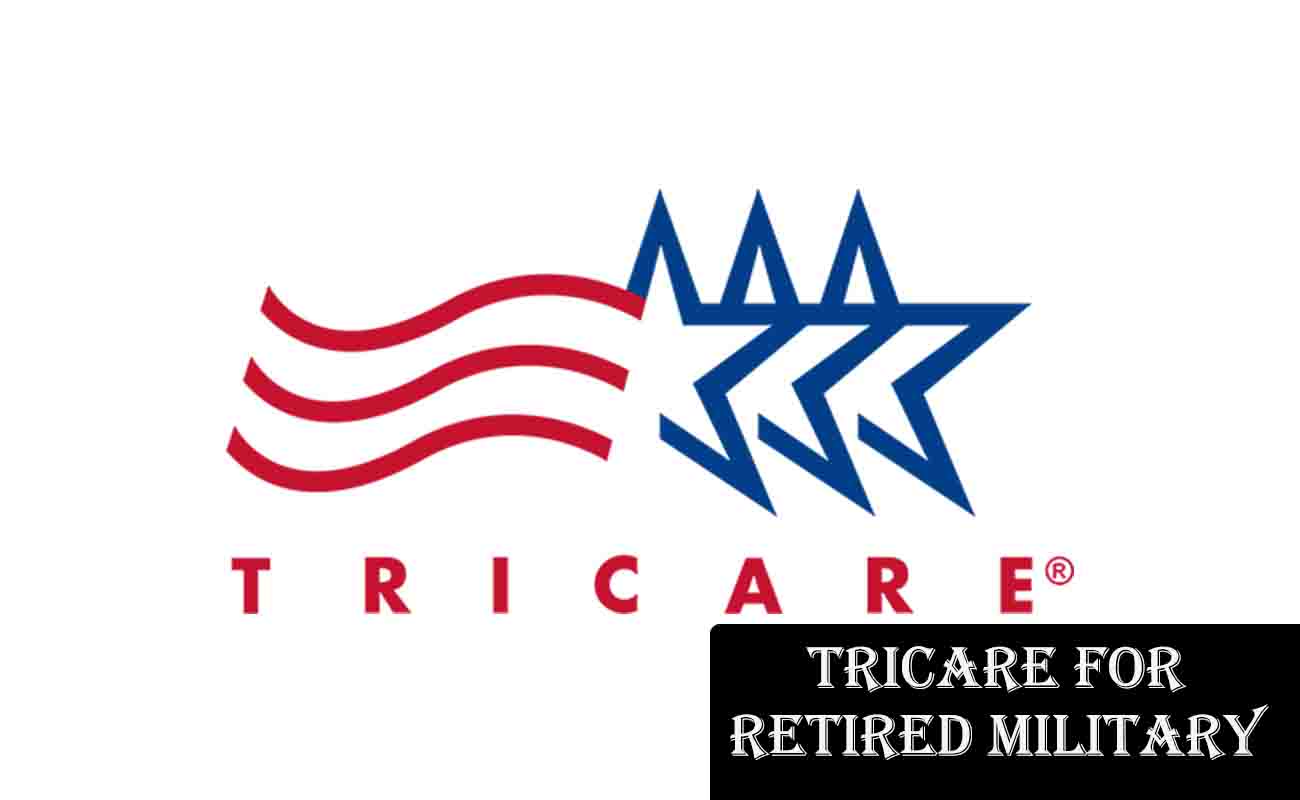Let me walk you through everything you need about Tricare for retired military members, ensuring you feel informed and secure. Healthcare becomes a major concern for military people and their families as they go from active service to retirement. I know how difficult it may be for retired military members to navigate Tricare since I’ve been through this transition myself. The regulations, eligibility requirements, and expenses of the system you’re entering may differ from what you used to while on active service.

We’ll be talking about Tricare for retired military personnel in this guide. To assist you in making well-informed decisions on your healthcare coverage, we will examine the various plans, eligibility requirements, cost-sharing information, and supplementary resources.
CHECK OUT >>> KY Retirement Insurance – Kentucky Public Pensions Authority
What is Tricare for Retired Military?
Tricare is a global healthcare program that serves retirees, uniformed military members, and their families. Your eligibility for Tricare does not change once you leave active duty and enter retiree status. Your alternatives, however, can alter, and you’ll probably have to deal with new fees and enrollment restrictions.
Tricare provides several customized options for former military members. Tricare Prime, Tricare Select, and Tricare for Life are some of these programs. Every plan has different pricing, eligibility requirements, and features. To assist you choose which one could be best for you, I’ll break them down.
Eligibility for Tricare as a Retiree
When you retire, you can get Tricare if you have at least 20 years of qualified service. Your spouse and dependents will be able to receive Tricare benefits because of your family’s eligibility.
“Does this include Reserve and National Guard retirees?” you could ask. There is a catch, but the answer is yes. Tricare Retired Reserve is available to Reserve and National Guard retirees under 60 who are receiving retired pay. You switch to the same choices as typical retirees after you reach 60 and start receiving full retirement benefits.
Tricare Plan Options for Retired Military
One of the most important choices you will make as a retired military member is selecting the appropriate Tricare plan. Knowing your options can help you make an informed decision that fits your healthcare requirements and lifestyle. Each plan offers varying levels of coverage, flexibility, and pricing.
There is a Tricare plan that is tailored to your needs, whether you want Medicare coordination, prefer managed care with a primary care physician, or want the freedom to see any provider. Let’s dissect the main plans so you can choose the one that works best for you.
- Tricare Prime
- Overview: Like a civilian HMO, Tricare Prime is a managed care alternative. You must designate a Primary Care Manager (PCM) to supervise your treatment and make expert referrals.
- Cost: Although there is an annual membership charge for retirees, in-network care is typically less expensive than other plans.
- Pros: Living close to a Military Treatment Facility (MTF) makes it alluring due to its predictable costs and extensive coverage.
- Cons: Restricted freedom because you have to follow referral protocols and look for care within the network.
- Tricare Select
- Overview: Tricare Select is a fee-for-service plan that gives you greater freedom in selecting your medical professionals. Referrals and a PCM are not required.
- Cost: Each service has out-of-pocket expenses and an annual enrollment charge. For retirees who don’t live close to an MTF, the flexibility can be worthwhile.
- Pros: More options for providers and no need for referrals.
- Cons: More expensive out-of-pocket than Tricare Prime.
- Tricare for Life
- Overview: Tricare for Life is available to you if you are 65 years of age or older and eligible for Medicare Parts A and B. This plan serves as Medicare’s backup coverage.
- Cost: Medicare Part B premiums must be paid, but there are no enrollment fees.
- Pros: Complete coverage, including care abroad.
- Cons: Requires Medicare coordination, which at first may be unclear.
- Tricare Retired Reserve
- Overview: Reserve and National Guard retirees under 60 years of age are eligible.
- Cost: It is more costly than other Tricare alternatives because it is premium-based.
- Pros: Offers protection up until the point at which you qualify for standard retiree Tricare.
- Cons: Some retirees may be put off by higher rates.
Costs Associated with Tricare for Retired Military
Planning a seamless transition into retirement requires an understanding of the Tricare charges for former military personnel. Depending on the plan they select, retirees must pay enrollment fees, copayments, deductibles, and premiums, in contrast to active duty, where the majority of healthcare services are provided free of charge.
Understanding these costs will enable you to create an efficient budget and steer clear of unforeseen financial pitfalls. Let’s examine the many expenses you can face and how they affect your entire healthcare budget.
- Enrollment Fees: Retirees must pay an annual registration fee for plans such as Tricare Prime and Tricare Select.
- Copayments and Deductibles: The type of care you receive and whether you use in-network or out-of-network providers will determine your out-of-pocket expenses.
- Medicare Part B Premiums: You must pay Medicare Part B premiums, which are determined by your income if you are enrolled in Tricare for Life.
To prevent surprises and make sure you’re getting the most out of your Tricare benefits, you must budget for these expenses.
Enrollment and Transitioning to Retiree Tricare
Your Tricare coverage does not automatically transfer when you leave active duty and enter retirement; you must take certain actions to guarantee that you and your family will continue to be covered for medical expenses. Enrollment must be done correctly to prevent coverage gaps, which may result in unforeseen medical costs.
You can ensure a smooth transition and protect the benefits you’ve accrued during your service by being aware of the enrollment procedure and important dates. Let’s review the procedures to make sure you’re protected as you start this new phase.
- Update DEERS (Defense Enrollment Eligibility Reporting System): Following retirement, this is the first stage. Make sure your family’s and your information is up to date.
- Choose a Tricare Plan: To choose the best plan, consider your location, budget, and healthcare requirements.
- Enroll During the Open Enrollment Period: You might have to wait for a Qualifying Life Event (QLE) to occur before enrolling in a plan if you miss this.
It’s important to act quickly because if you don’t enroll in time, you and your family may not have insurance.
Tricare Dental and Vision Coverage for Retirees
Medical coverage is only one aspect of healthcare requirements; as a retiree, keeping your teeth and eyes healthy is equally crucial. You can obtain normal dental and vision treatment through the Federal Employees Dental and Vision Insurance Program (FEDVIP), even though Tricare does not cover these services for retirees.
To guarantee that you and your family have access to complete dental and vision care, FEDVIP provides a range of programs designed to meet various demands and financial constraints. Let’s examine how these choices operate and the requirements for enrolling.
- Dental Coverage: FEDVIP provides a range of plans that include major dental surgeries, orthodontics, and preventive care to accommodate various requirements and budgets.
- Vision Coverage: FEDVIP vision plans cover contact lenses, glasses, and regular eye exams.
In order to make sure that the plan you choose complements your Tricare coverage, I recommend you investigate FEDVIP during the Federal Benefits Open Season.
Overseas Care for Retired Military
Tricare still provides coverage if you intend to retire and reside overseas. For retirees and their families who reside outside of the United States, Tricare Overseas provides coverage. Nevertheless, compared to stateside coverage, the procedure for obtaining care and submitting claims may be more complicated.
Important advice for caregiving abroad:
- Get to know your region’s Tricare Overseas contractor.
- Keep thorough records of all medical costs, and file claims as soon as possible.
- To cover expenses that Tricare does not reimburse, think about getting additional insurance.
Why Tricare for Retired Military is Valuable
I can state with confidence that Tricare for the retired military provides amazing value because I have personally gone through the changeover. This all-inclusive healthcare system is designed to meet the particular requirements of military families. Even while there are expenses, they are frequently less expensive than civilian healthcare options, guaranteeing your family’s safety.
Final Thoughts
Retired military members may find navigating Tricare stressful, but with the right knowledge, you can make decisions that suit your needs both financially and lifestyle-wise. I urge you to evaluate your healthcare requirements, consider your options, and take prompt action when enrollment is open. Your well-being and health are valuable.
You may position yourself for a safe and healthy retirement by being aware of your Tricare alternatives and budgeting for expenses. Do not hesitate to speak with a Tricare representative if you have specific questions or concerns. You can also visit their official website for the most recent information.
REFERENCE >>> Tricare
RECOMMENDED >>> Railroad Retirement Medicare for Workers and Their Families

